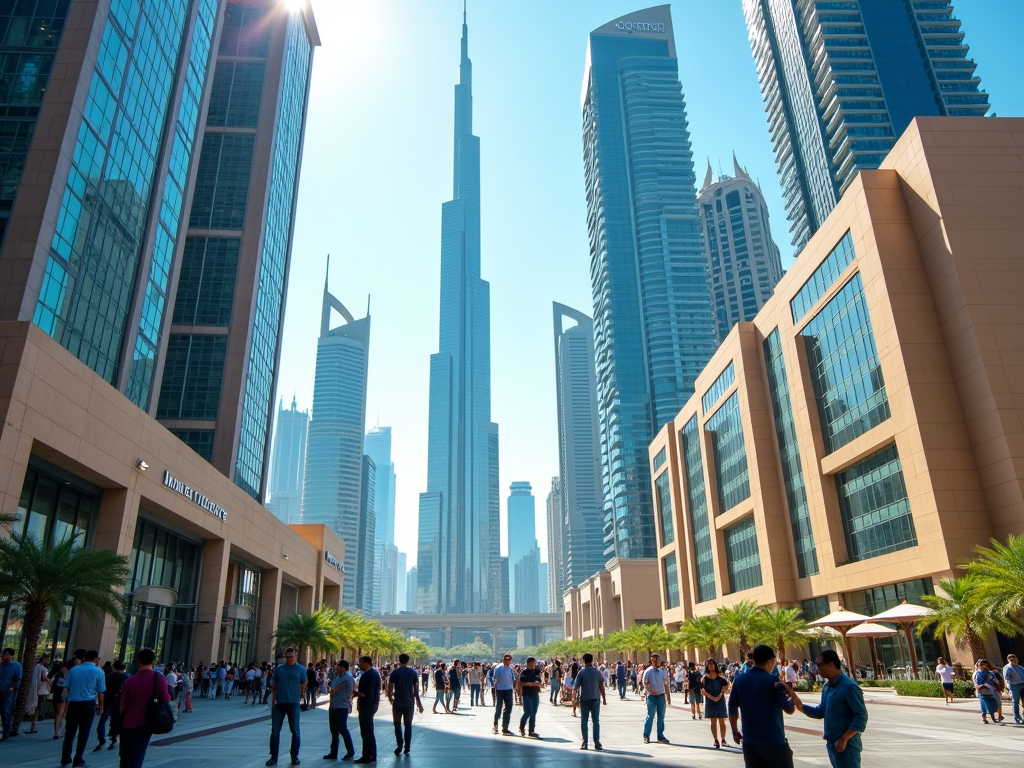
As a global business hub, Dubai’s future landscape is poised for remarkable transformation driven by innovation, technology, and sustainability. The city has established itself as a major player in various sectors, including tourism, finance, technology, and trade. To navigate this dynamic environment, businesses must pay attention to several key trends that will shape the forthcoming business climate in Dubai. From the rise of smart businesses to the increasing importance of sustainability, understanding these trends is crucial for success.
1. The Rise of Digital Transformation

Digital transformation is at the forefront of Dubai’s business evolution. Companies are increasingly adopting digital technologies to enhance efficiency, improve customer experience, and drive growth. The shift towards digital is not just an option; it’s become a necessity for survival. For instance, businesses are utilizing big data analytics to gain insights into consumer behavior, thus tailoring their offerings more effectively. Moreover, companies focusing on e-commerce are experiencing unprecedented growth, fueled by burgeoning internet penetration and smartphone usage in the region. Key aspects of this trend include:
- Increased reliance on cloud computing solutions.
- Adoption of artificial intelligence for business processes.
- Implementation of blockchain for secure transactions.
- Growth of remote work technologies.
- Enhancement of digital marketing strategies.
2. Sustainability and Green Business Practices

In line with global trends, sustainability is becoming an integral part of business strategies in Dubai. The UAE government has laid out ambitious plans to promote green initiatives, financially support sustainable startups, and encourage environmentally friendly practices across all sectors. Businesses will need to adapt to these expectations, including reducing their carbon footprints and adopting sustainable supply chains. Here are some critical elements driving this trend:
- Investment in renewable energy technologies.
- Implementation of waste management solutions.
- Promotion of sustainable real estate developments.
- Support for eco-friendly logistics and transportation.
The COVID-19 pandemic has fundamentally changed the perception of remote work, making it a permanent fixture in the corporate landscape. Companies in Dubai will increasingly embrace hybrid work models as employees seek greater work-life balance and flexibility. Furthermore, this shift opens up opportunities for businesses to tap into a global talent pool, leading to enhanced innovation and diversity. As remote work continues to gain traction, organizations will need to invest in technologies that support collaborative environments, secure communication, and team engagement.
4. The Role of Artificial Intelligence and Automation
Artificial Intelligence (AI) and automation are rapidly transforming industries across Dubai. These technologies are optimizing workflows, enabling data-driven decision-making, and streamlining operations, allowing companies to thrive in a competitive market. Businesses leveraging AI and automation can expect to save time, reduce costs, and enhance productivity. A few sectors where these technologies are becoming indispensable include:
- Healthcare, for improved patient care and diagnosis.
- Finance, for advanced fraud detection and risk management.
- Retail, for personalized shopping experiences.
- Manufacturing, for enhanced production efficiencies.
5. Emerging Startups and Entrepreneurial Ecosystems
Dubai’s reputation as a thriving startup ecosystem is only expected to grow. The city offers numerous incentives for entrepreneurs, ranging from free zones to funding opportunities through various innovation hubs. This environment encourages local talent and attracts international startups to set up shop in Dubai. With a focus on technology, finance, and sustainability, these emerging startups are poised to disrupt traditional business models. Key factors contributing to this vibrant ecosystem include:
- Access to venture capital and angel investors.
- A supportive regulatory framework for startups.
- Networking opportunities through startup incubators.
- Exposure to a large, diverse consumer market.
Conclusion
The future of Dubai’s business landscape is undoubtedly vibrant and full of potential. As digital transformation, sustainability, remote work, AI, and a flourishing startup ecosystem shape the market, businesses must stay agile and forward-thinking to leverage these trends effectively. By embracing change and responding proactively to these shifts, companies can not only survive but thrive in the evolving business environment of Dubai.
Frequently Asked Questions
1. What is driving Dubai’s digital transformation?
Dubai’s digital transformation is driven by the need for greater efficiency, improved customer experiences, and competitive advantages in the global marketplace, fueled by advances in technology.
2. How is sustainability impacting businesses in Dubai?
Sustainability is impacting businesses by encouraging eco-friendly practices, reducing carbon emissions, and meeting consumer demand for environmentally conscious products, driven by government initiatives.
3. What role does AI play in Dubai’s business landscape?
AI enhances productivity, streamlines operations, and promotes data-driven decisions across industries, helping businesses gain a competitive advantage.
4. How can startups thrive in Dubai’s ecosystem?
Startups can thrive in Dubai by leveraging regulatory support, networking opportunities, and access to funding from local and international investors.
5. What trends should businesses in Dubai watch for in the coming years?
Businesses should watch for trends in digital transformation, sustainability, the adoption of remote work, AI integration, and the growth of the startup ecosystem to stay competitive.


